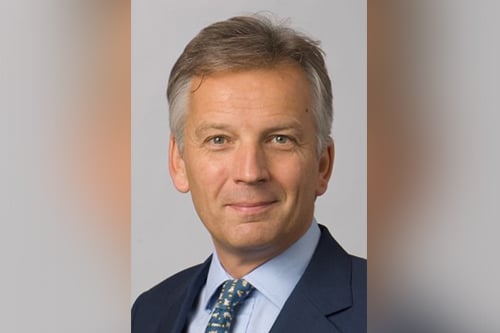

The coronavirus (COVID-19) pandemic has made the last several months exceptionally difficult for charitable organisations as they have been faced with rising demand for their services, coupled with increasingly limited opportunities for fundraising. As a result, an emergency appeal was recently activated by Insurance United Against Dementia (IUAD) to raise attention, support and funds for those suffering with dementia who are currently self-isolating under Government regulations.
With people over 70 being asked to isolate themselves during the pandemic, social isolation has become a pressing threat to the 700,000-strong community of people in this age group who suffer from dementia. For Simon Beale (pictured), the former CEO of MS Amlin and current advisor to Mitsui Sumitomo Insurance, supporting IUAD’s appeal is a deeply personal matter.
“[I first became involved] when I was invited to a dinner with dementia experts and it got me thinking about how I could help make a difference,” he said. “My own late mother suffered from early onset of dementia and I fully appreciate the frustrations on all parties.”
Beale has seen that dementia is beginning to be better understood by the younger generations as their parents and grandparents live to good ages but suffer in their later years. There is also more awareness of the “juggernaut” that is dementia, and its capacity to engulf society over the coming years - more are being cured of cancer and heart disease, with many more likely to die with dementia.
“I went on to host two dinners,” he said, “bringing together executives from across the insurance industry to understand more about dementia which resulted in £250k of funding. I recently committed to becoming an IUAD Partner, which involves making a significant annual personal donation to fund crucial dementia research and support services.”
Beale has been impressed by the strength of the response from the industry to IUAD so far, as over £3 million has already been realised to deliver vital research and support services. The recent emergency appeal was precipitated by the devasting impact that the pandemic is having on the lives of those living with dementia in the UK as they face being cut off from friends, family and support networks.
“In a matter of weeks, Alzheimer’s Society totally reengineered their support, moving from face-to-face to online and telephone services to ensure their 100,000 service-users can still receive the specialist support they deliver,” he said. “But they continue to see a huge increase in requests for support – a 600% increase in traffic to their online support forum and a fivefold increase in calls to their support line.”
Beale highlighted that, due to the impact that the coronavirus is having on their fundraising, the charity is facing a deficit of £35 million, which is putting its ability to deliver this crucial support at grave risk.
Funds raised by this IUAD appeal will go towards ensuring the society’s 600 community dementia advisers are able to offer specialist support to people over the phone. They will also support the charity’s new volunteer initiative, ‘Companion Calls’, which has been created to combat the dangers of loneliness and isolation, which can significantly worsen the outlook of those with this condition.
“Demand on the Alzheimer’s Society is phenomenal,” Beale said. “They have seen a five-fold increase in calls as those with dementia are becoming increasingly vulnerable to the progressive illness, which is exacerbated by isolation. I have heard heart-breaking stories of people starving because they were unable to get food deliveries, self-harm and those contemplating suicide, as well as reports of domestic violence. People are also terrified that, once the crisis is over, their basic life skills will be irrevocably damaged - the ability to speak and the ability to go out and connect with society again are particular concerns.”
There is a great deal that insurance companies and the employees of these companies can do to support this cause – whether that’s giving their time, their understanding, their support and/or their financial assistance. At a company level, Beale said, firms and their employees should be encouraged to understand the sheer extent of the problem. Organisations which have a budget to support charities can help by including IUAD as their charity of the year, or as one of the charities that they elect to support. On an individual level, the aim is to encourage personal contributions, whether that is through a donation or volunteering or fundraising.
“The insurance industry’s raison d’etre is to support people and organisations in time of need, IUAD is a parallel opportunity,” Beale said. “As a result of the pandemic, the industry could benefit from improving its image within society. Dementia will have one of the most significant impacts on our society over the coming decade unless we find a cure and/or enhance treatment and care.”
